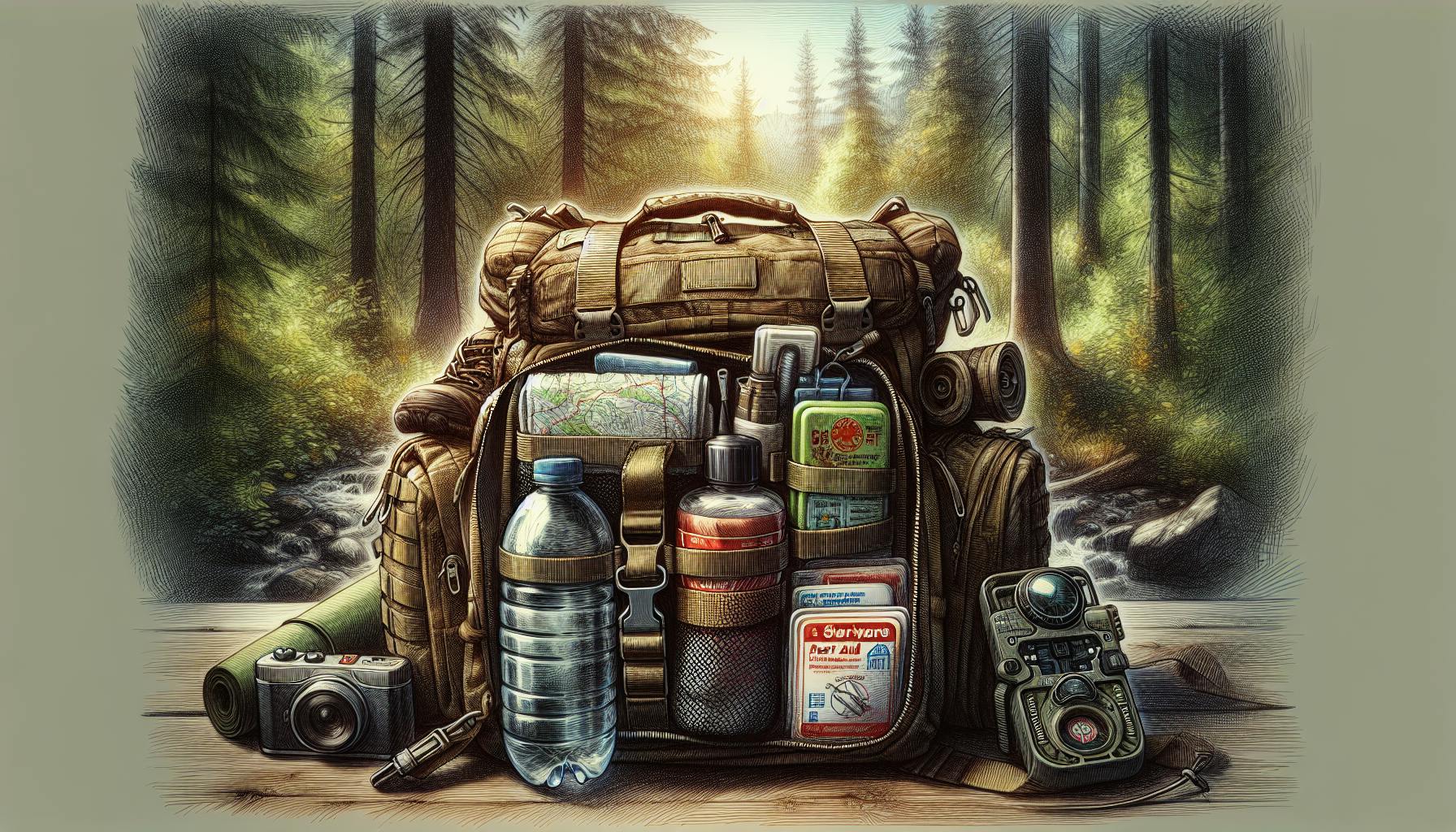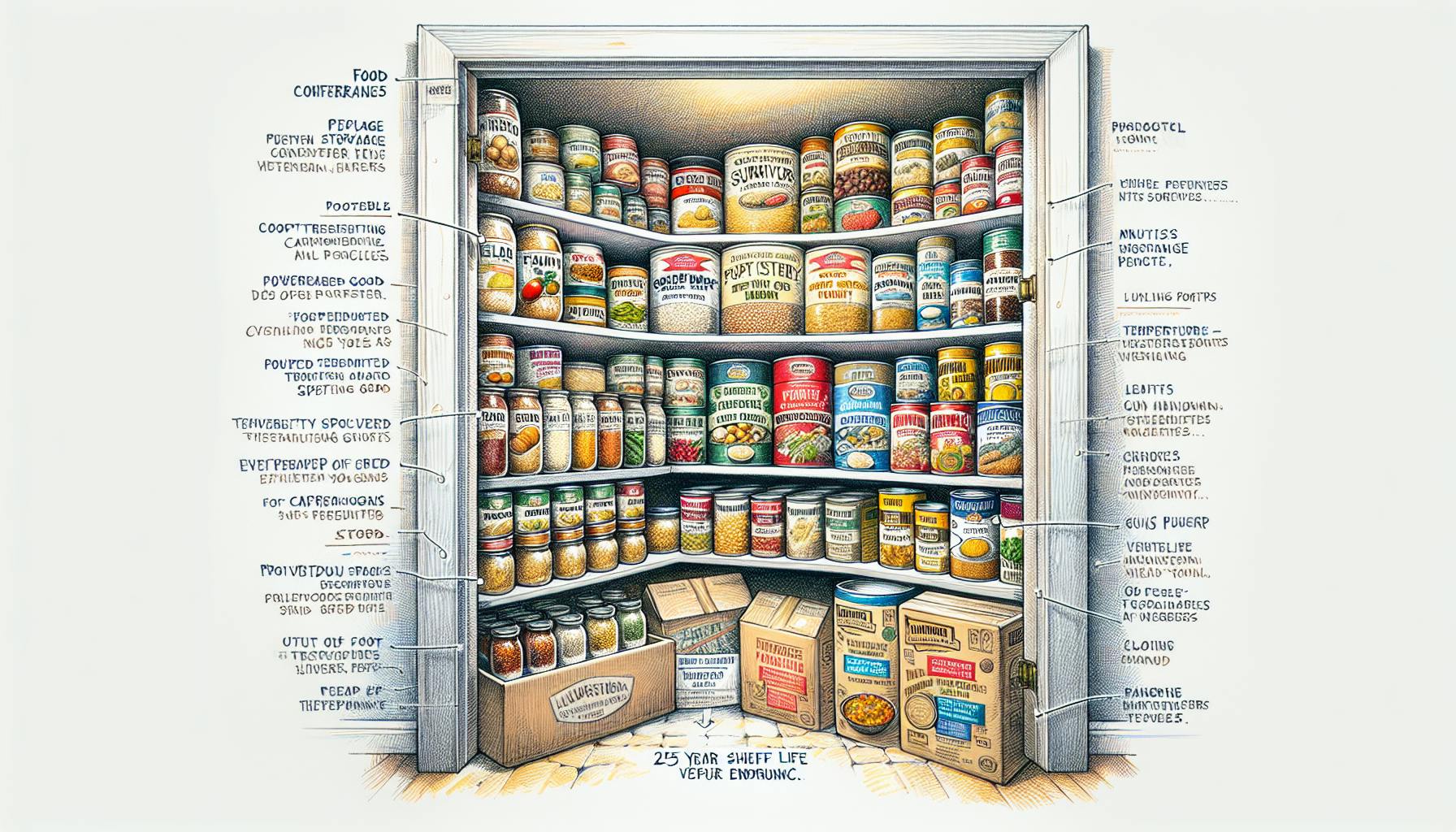Assess Your Current Level of Preparedness
Being prepared for an electric blackout starts with understanding your current level of readiness. Take some time to take stock of the emergency supplies you already have on hand. Do you have enough non-perishable food, water, first aid items, flashlights and batteries to last a few days or longer? Identify any gaps in your supplies, especially when it comes to necessities like food, water, medicine, and sanitation. Make a list of electronics and appliances that require power, and how long they can run on battery backups. Ensure you have alternate light sources like flashlights, lanterns, and candles with spare batteries. Check if you have alternate cooking methods that don't require electricity, like a gas grill or camp stove. The more prepared you are before an outage, the better you'll be able to handle it.
Stock Up on Essentials
Once you've assessed your current level of preparedness, you can start filling in any gaps. Experts recommend having at least a 3-day supply of non-perishable food and water for each person. Canned goods, dehydrated meals, protein bars, and bottled water are good options. Get a battery-powered or hand crank radio to receive emergency broadcasts and updates. Stock up on extra batteries, flashlights, candles, matches, and lighters. Have a well-stocked first aid kit and several weeks' supply of essential medications. Keep some cash on hand since ATMs and credit card readers may not work during an outage.
Fill up spare water containers and bathtubs before an outage to ensure adequate water reserves. Water storage barrels are a great option. Store at least 1 gallon per person daily.
Prepare Your Home
Make your home as outage-proof as possible. Learn how to manually open your electric garage door in case the power is out. Make sure you have enough propane or charcoal for non-electric cooking appliances. Fill up any spare water containers ahead of time. Clear out your refrigerator and freezer to slow food spoilage. Unplug major appliances like washers, dryers, and computers to avoid damage from power surges.
Inspect window locks and trim overhanging trees or remove dead branches to secure your home. Test backup generators monthly and have spare fuel to power them if needed.
Plan for Health Needs
Don't forget to prepare for any medical needs during an extended outage. Have at least a 1 month supply of prescription medications and renew them well before they expire. Store backup health items like spare eyeglasses, hearing aid batteries, and mobility aids. Stock up on hygiene and sanitation supplies. If you rely on medical equipment requiring power, talk to your doctor about how to prepare, including moving medications that require refrigeration. Those who use oxygen concentrators should understand how long their device can run on battery power and have spare oxygen tanks available.
Secure Your Home
Take steps to secure your home before an outage occurs. Install high-quality surge protectors to protect expensive electronics. Have a backup generator properly installed and serviced so it's ready to safely power essentials. Trim trees near power lines and remove dead branches that could cause damage during storms. Review your homeowners or renters insurance to ensure you have adequate coverage for an extended power loss. Back up important computer files regularly in case of technology damage.
Stay Informed
Know where to access up-to-date information during an outage. Sign up for emergency alerts from local officials that can notify you of extended power failures in your area. Follow energy companies like ConEd or PG&E on social media for real-time power restoration updates. Learn when and how to safely turn off utilities like gas and water before an outage. If cell towers are overwhelmed, listen to radio updates on a battery-powered or hand crank radio. Notify your out-of-town relatives and neighbors so you can check in on each other if needed.
Have a Game Plan to Get Through an Outage
When the lights go out, it's essential to have a plan in place to safely meet your family's basic needs. Agree on a meeting spot, like a neighbor's home, if you get separated during an outage. Learn techniques to keep food cold without power, like using coolers with ice packs. Have activities ready to pass the time without electronics, such as board games, cards, books, and puzzles. Know how to manually open electric gates, garage doors, and community gates in your neighborhood if needed. Identify backup locations to relocate to if necessary, like staying with family or friends whose power is still on.
Conserve Cell Phone Battery
Cell networks can quickly become overwhelmed during outages when everyone tries to use their phones. Limit calls, texts, email, and app usage to emergency communications only. Turn off WiFi, Bluetooth, GPS, and location services to conserve battery. Put your phone in airplane mode and only enable wireless when you need to connect. Reduce screen brightness significantly, disable push notifications, and refrain from browsing social media. Use old-fashioned landline phones for calls whenever possible. Limiting battery drain lets you save your phone for critical communications.
Travel Safely
Avoid driving during outages unless absolutely necessary. With traffic lights out and gas pumps inoperable, roads can become dangerous quickly. Have at least a half tank of gas at all times in case you must evacuate. Plan alternate routes in case signals or lights are not functioning. Keep a paper map in your emergency kit for navigation if GPS fails. If you must drive, carpool or use buses and transit if possible. Stay informed about road conditions before traveling anywhere. If stranded, remain in your car with emergency flashers on until help arrives.
Prevent Food Spoilage
During an extended outage, take steps to minimize food spoilage and waste. Keep refrigerator and freezer doors closed as much as possible. Use coolers filled with ice or ice packs to keep perishable items cold. Cook, eat, preserve, or compost perishable foods first before they spoil. Never taste food that smells or looks spoiled - when in doubt, throw it out. Avoid opening freezers to prevent thawing. Careful food planning reduces safety risks and saves money.
Stay Safe Indoors
Practice safety precautions while indoors during an outage. Never use gas stoves, grills, or generators inside due to deadly carbon monoxide risks. Check on elderly, disabled, or at-risk neighbors regularly. Limit alcohol consumption which can impair good safety decisions. Prevent falls by using flashlights instead of candles to see at night. Unplug appliances and electronics to avoid damage from power surges when electricity is restored. Staying informed and vigilant protects your household.
Entertain Yourself Without Power
Get creative when the power is out! Enjoy classic board games and card games by flashlight or candlelight. Listen to a wind-up or battery-powered radio for music and entertainment. Catch up on reading books or doing puzzles and word games to pass the time. Take advantage of being homebound to declutter and organize your living space. Do low-tech outdoor activities like taking family walks, bike rides, or camping in the backyard. Bonding over simple pleasures makes an outage more bearable.
Key Takeaways for Handling a Power Outage
Advance preparation is crucial for smoothly handling a power outage. Assess your level of preparedness and stock up on essentials before an outage occurs. Have a plan to safely meet basic needs like fresh food, water, light, and communication. Take proactive steps to conserve limited resources. Travel only when absolutely necessary. Stay informed via radio, social media, and direct contact with local officials and utilities. With the proper precautions and supplies, your family can weather the storm - literally!
In summary, being ready for an electric blackout requires advance planning and vigilance. However, taking proactive steps to assess your needs, stock up on essentials, conserve resources, communicate effectively, and focus on safety will help minimize disruption and hardship. Staying informed, working together, and looking out for others in your community also helps withstand the challenges. With preparation and prudence, you have the power to endure a power outage. Stay safe!


